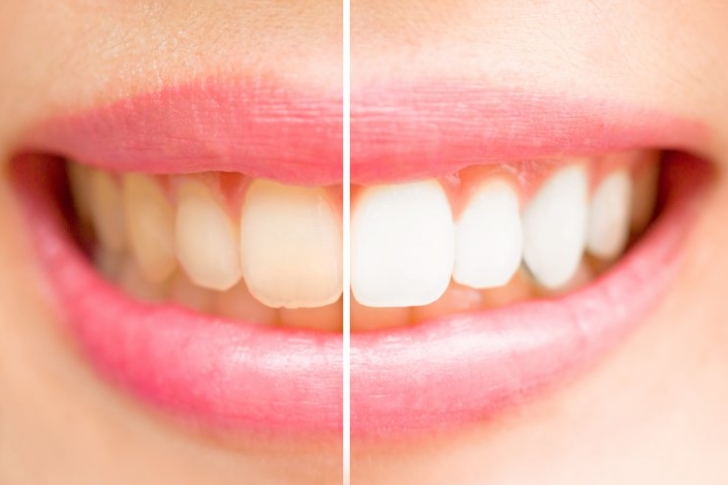Proper oral hygiene starts with selecting the right toothbrush and using it correctly. Follow these tips to ensure your brushing routine is effective and keeps your smile healthy.

A toothbrush is one of the most fundamental tools for maintaining oral hygiene. However, with a multitude of choices available on the market, selecting the right toothbrush and knowing how to use it effectively can be overwhelming. This comprehensive guide will help you make informed decisions about choosing and using a toothbrush to ensure optimal dental health.
Proper brushing of teeth is pivotal for removing plaque, preventing gum disease, and maintaining overall oral health. A suitable toothbrush can make a significant difference in achieving these goals. It's not just about the tool itself but also the technique and frequency of brushing that contribute to a healthy mouth.
1. Toothbrush Type: Manual vs. Electric
Manual Toothbrushes:
- Advantages:
- Affordable and widely available.
- No need for batteries or charging.
- Considerations:
- Requires proper technique and consistency for effective cleaning.
Electric Toothbrushes:
- Advantages:
- Efficient at removing plaque and reducing gingivitis.
- Easier for people with limited mobility or arthritis.
- Often come with built-in timers and various brushing modes.
- Considerations:
- More expensive initially.
- Needs charging or battery replacements.
2. Bristle Type
Soft Bristles:
- Recommended for most people as they are gentle on gums and enamel.
- Effective in removing plaque without causing damage.
Medium and Hard Bristles:
- Can be too abrasive and may cause damage to gums and tooth enamel.
- Generally not recommended unless advised by a dental professional.
3. Toothbrush Head Size and Shape
- Choose a toothbrush with a head size that fits comfortably in your mouth and can reach all areas.
- Smaller heads are generally better for maneuvering around teeth.
- Contoured or angled heads can improve access to back teeth and hard-to-reach areas.
4. Handle Comfort and Grip
- Look for a toothbrush with an ergonomic handle that feels comfortable to hold.
- Non-slip grips can provide better control, especially when the toothbrush is wet.
1. Brushing Technique
- Hold the toothbrush at a 45-degree angle to your gums.
- Gently move the brush back and forth in short (tooth-wide) strokes.
- Ensure you brush all surfaces of each tooth, including outer, inner, and chewing surfaces.
- Brush for at least two minutes, twice a day.
2. Be Gentle
- Avoid brushing too hard, as it can cause gum recession and enamel wear.
- Let the bristles do the work; a gentle motion is sufficient for effective cleaning.
3. Replace Your Toothbrush Regularly
- Replace your toothbrush every three to four months or sooner if the bristles are frayed.
- A worn-out toothbrush won’t clean your teeth effectively.
4. Clean and Store Your Toothbrush Properly
- Rinse your toothbrush thoroughly with water after each use to remove toothpaste and debris.
- Store it in an upright position and allow it to air dry.
- Avoid covering your toothbrush or keeping it in a closed container, as it can encourage bacterial growth.
1. For Children
- Choose an age-appropriate toothbrush with a smaller head and soft bristles.
- Encourage children to brush correctly and supervise their brushing until they develop good habits.
2. For People with Braces
- Use a toothbrush with soft bristles and a smaller head to navigate around braces effectively.
- Consider an electric toothbrush with orthodontic-specific brush heads for more efficient cleaning.
- Additional tools like interdental brushes and floss threaders can help clean around braces.
3. For Seniors
- Pay attention to toothbrush handle design, as ergonomic and non-slip grips can be especially helpful.
- Electric toothbrushes can be beneficial if manual dexterity is a concern.
A comprehensive oral care routine involves more than just brushing. Flossing and using mouthwash are essential components:
- Flossing: Removes plaque and food particles from between teeth where the toothbrush cannot reach. Floss at least once a day.
- Mouthwash: Can help reduce plaque, gingivitis, and bad breath. Use an alcohol-free mouthwash for a gentler option.
Regular dental check-ups and professional cleanings are crucial for maintaining oral health. Your dentist can provide personalized recommendations for the best toothbrush and oral care practices tailored to your specific needs.
Choosing and using the right toothbrush is fundamental to achieving and maintaining excellent oral health. By considering factors like toothbrush type, bristle softness, head size, and handle comfort, and following proper brushing techniques, you can ensure you are effectively cleaning your teeth and gums. Incorporating flossing, mouthwash, and regular dental visits into your routine will further enhance your oral hygiene regimen. Take time to select the best tools and techniques for your needs, and enjoy the benefits of a bright, healthy smile.
Explore the Tranquil Bliss of Idyllic Rural Retreats

Ultimate Countdown: The 20 Very Legendary Gaming Consoles Ever!

Understanding Halpin and its Influence

Affordable Full Mouth Dental Implants Near You

Discovering Springdale Estates

Illinois Dentatrust: Comprehensive Overview

Embark on Effortless Adventures: Unveiling the Top in Adventures Made Easy Outdoor Equipment

Unveiling Ossur Valves: Innovation in Prosthetics

Unlock the Full Potential of Your RAM 1500: Master the Art of Efficient Towing!
